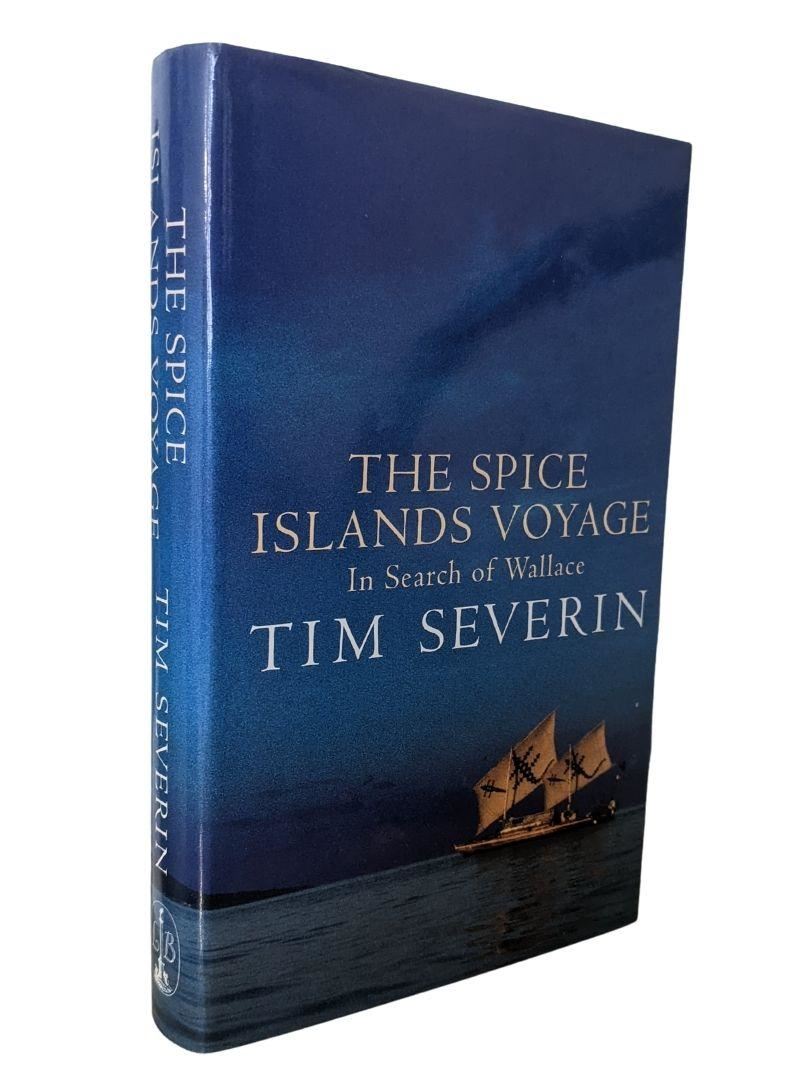Goldsboro Books
316881759The Spice Islands Voyage: In Search of Wallace
The Spice Islands Voyage: In Search of Wallace
Publisher Little Brown and Company
Genre: Historical Fiction
Publication date:
Available from:
- Signed by the Author
- UK First Edition
- First Printing
- Hardcover
Out of stock
Couldn't load pickup availability
Limited Edition Copies
View full details
-
Professionally Packed
All of our books that have a dust wrapper are covered in clear protective, removable film and are packed professionally in bubble wrap and a box for shipping so that they reach you in perfect condition.
-
Book Condition & Notes
Fine first edition with very slight bruising to the top of the spine. In a fine, unclipped dust jacket with faint bumping along the top edge.
About the book
In 1858, Alfred Wallace, while laid up with malaria in the middle of his long Moluccan sojourn, wrote a brief essay which made its way to Charles Darwin, who had been searching for the solution to a problem for two decades.
When Darwin finally published ''On the Origin of Species'' a couple of years later, he gave credit to Wallace, who nonetheless faded, unprotesting, into relative obscurity.
Wallace had already been on one major expedition before his Indonesian journey, a voyage to Brazil, which ended badly when most of the bird and insect samples he was carrying were lost in a fire on the ship taking him back to England. But his eight years in the Spice Islands, one of the world's major hotbeds of bio-diversity, rank among the major expeditions of scientific discovery.
Tim Severin decided to retrace his voyage. He and his crew spent several months in the Spice Islands, stopping at Wallace's ports of call from the Aru Islands in the east to Sulawesi in the west, taking pictures, recording sightings of butterflies and birds, checking out the environmental record and interviewing local officials.
''The Spice Islands Voyage'' is a travelogue-biography, a balanced combination of historical re-enactment and contemporary adventure, which tells the story of that ground-breaking voyage.
But as Severin follows Wallaces journey, he starts to find a darker truth: that species are not being protected but extorted.
How involved was Wallace and how can he end the abuse?
Severins hero of Alfred Wallace is beginning to look less heroic and more suspicious
In The Spice Islands Voyage, world renowned explorer Tim Severin goes in search of the real story behind Alfred Wallaces expeditions.
Collapsible content
About the Author
Tim Severin
Collapsible content
GPSR EU Safety Information
1. Manufacturer Contact Information
Goldsboro Books Ltd - 23-27 Cecil Court, London, WC2N4EZ, enquiries@goldsborobooks.com, 02074979230
2. EU Authorised Representative Information
Easy Access System Europe - Mustamäe tee 50, 10621 Tallinn, Estonia, gpsr.requests@easproject.com
3. Safety Warnings
Not applicable







